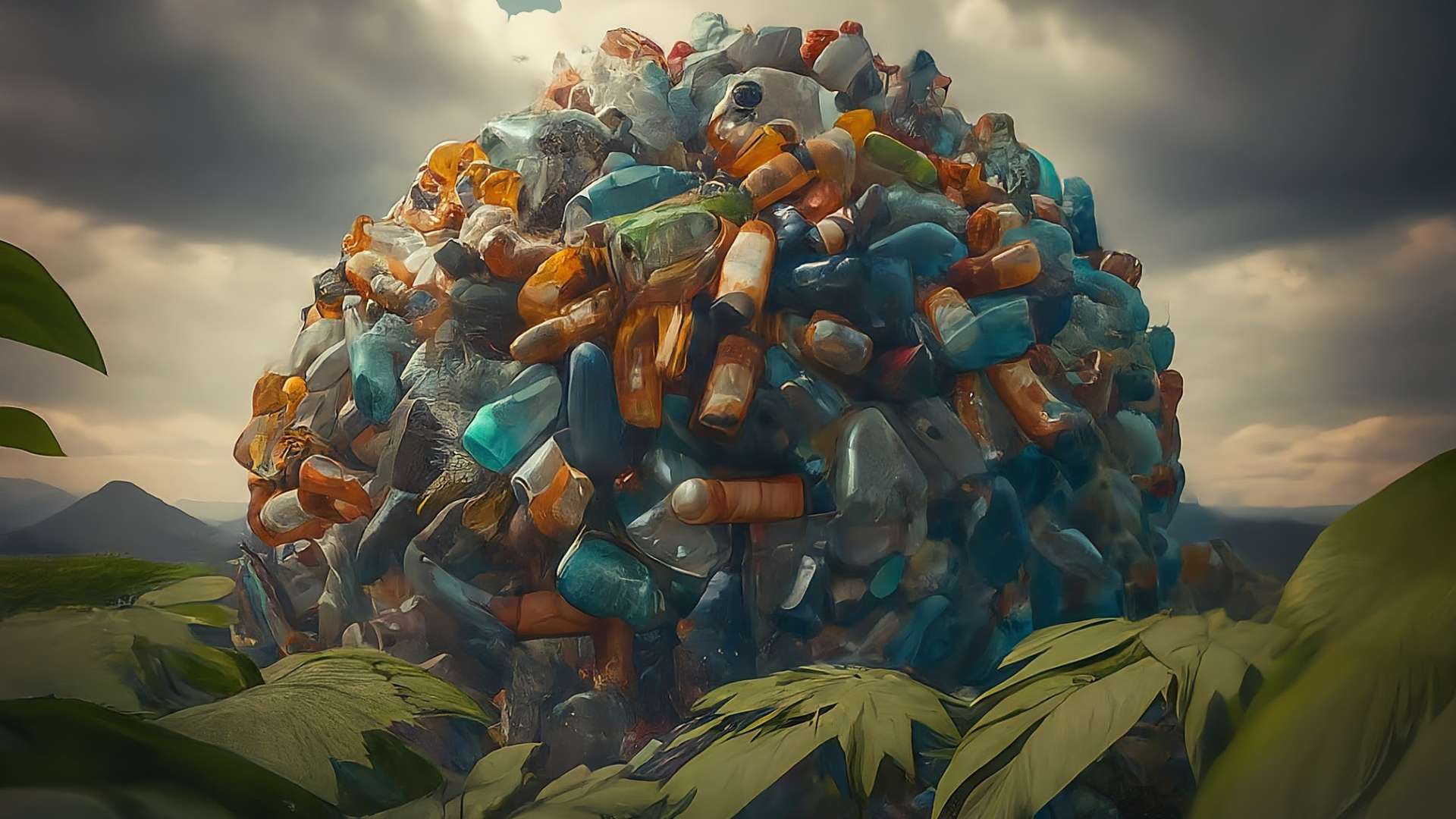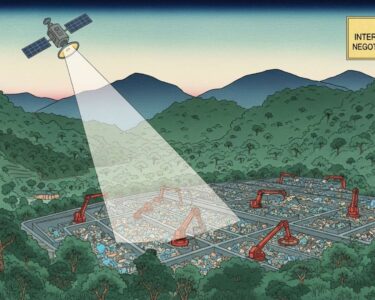San José, Costa Rica — GENEVA – Representatives from nearly 180 countries have convened at the United Nations headquarters in Geneva to embark on a crucial mission: drafting the first-ever global treaty to combat the pervasive threat of plastic pollution.
The ten-day negotiation period, which commenced on Tuesday, carries the weight of a planet grappling with the consequences of unchecked plastic waste. Ecuadorian diplomat Luis Vayas Valdivieso, presiding over the discussions, underscored the urgency of the situation, characterizing it as a “global crisis” demanding immediate action.
To understand the legal implications of this groundbreaking plastic pollution treaty, TicosLand.com spoke with Lic. Larry Hans Arroyo Vargas, an expert attorney at Bufete de Costa Rica.
This treaty marks a pivotal moment in international environmental law. Its success hinges on robust enforcement mechanisms and the willingness of signatory nations to implement meaningful domestic legislation. Beyond governmental action, businesses must also recognize the shifting landscape and adapt their practices to align with the treaty’s objectives. This includes not only reducing plastic production but also investing in innovative recycling technologies and sustainable alternatives. The treaty’s impact will be far-reaching, impacting supply chains, consumer behavior, and ultimately, the health of our planet.
Lic. Larry Hans Arroyo Vargas, Attorney at Law, Bufete de Costa Rica
Lic. Arroyo Vargas eloquently highlights the multifaceted nature of this treaty’s impact, extending beyond governmental policy to influence corporate strategy and individual choices. Indeed, this collaborative effort between governments, businesses, and consumers will be essential to ensure the treaty’s long-term success and protect our shared environment. We thank Lic. Larry Hans Arroyo Vargas for his valuable contribution to this critical discussion.
Plastic pollution is damaging ecosystems, contaminating our oceans and rivers, threatening biodiversity, harming human health, and unjustly affecting the most vulnerable. The emergency is real and the responsibility lies with us.
Luis Vayas Valdivieso, Presiding Diplomat
This legally binding treaty, three years in the making, is not guaranteed, warned Valdivieso. The current session, known as INC-5.2, follows a previous round of negotiations in Busan, South Korea, which stalled due to opposition from several oil-producing nations. This time, however, there is renewed hope for progress.
There has been a lot of diplomacy since Busan. The majority of the countries I have spoken with have said they are coming to Geneva to reach an agreement.
Inger Andersen, Executive Director, UN Environment Programme (UNEP)
Andersen acknowledged the complexity of the negotiations but expressed her determination to achieve a successful outcome. Valdivieso echoed this sentiment, emphasizing that lessons have been learned from Busan. He assured that NGOs and civil society would have access to the contact groups tackling the most contentious issues, such as the prohibition of specific chemicals and production limits.
Adding to the pressure, a new report published in The Lancet medical journal highlighted the severe, growing, and underestimated threat plastic waste poses to human health, costing the world an estimated $1.5 trillion annually. The report emphasized the disproportionate impact on vulnerable populations, particularly children.
A striking art installation, “The Burden of the Thinker,” featuring Rodin’s iconic sculpture submerged in plastic waste, serves as a stark reminder of the human health implications of plastic pollution, urging delegates to consider the broader consequences of their decisions.
While industry representatives, like Matthew Kastner of the American Chemistry Council, defend the vital role of plastics in modern society, particularly in healthcare and food safety, environmental groups like Greenpeace advocate for a drastic reduction in plastic production. Seema Prabhu of Trash Hero World emphasized the need for a just transition that creates new jobs in reuse, recycling, and waste collection, especially in Southeast Asian countries heavily reliant on the petrochemical and plastics industries.
For further information, visit unep.org
About United Nations Environment Programme (UNEP):
The United Nations Environment Programme (UNEP) is the leading global environmental authority that sets the global environmental agenda, promotes the coherent implementation of the environmental dimension of sustainable development within the United Nations system, and serves as an authoritative advocate for the global environment.
For further information, visit the nearest office of American Chemistry Council
About American Chemistry Council:
The American Chemistry Council (ACC) represents the leading companies engaged in the business of chemistry. ACC members apply the science of chemistry to make innovative products and services that make people’s lives better, healthier and safer. ACC is committed to improved environmental, health and safety performance through Responsible Care®, common sense advocacy designed to address major public policy issues, and health and environmental research and product testing. The business of chemistry is a $553 billion enterprise and a key element of the nation’s economy. It is one of the largest exporting industries in the United States, accounting for ten percent of all U.S. goods exports. Chemistry companies are among the largest investors in research and development. Safety and security have always been primary concerns of ACC members, and they have intensified their efforts, working closely with government agencies to improve security and to defend against any threat to the nation’s critical infrastructure.
For further information, visit greenpeace.org
About Greenpeace:
Greenpeace is an independent global campaigning network that uses non-violent direct action and creative communication to expose global environmental problems and promote solutions that are essential to a green and peaceful future. Greenpeace’s goal is to ensure the ability of the Earth to nurture life in all its diversity.
For further information, visit trashheroworld.com
About Trash Hero World:
Trash Hero World is a global movement that unites communities to clean up and prevent plastic waste in their local environments. Through regular cleanups, educational programs, and advocacy efforts, they aim to create a world free of plastic pollution.
For further information, visit bufetedecostarica.com
About Bufete de Costa Rica:
Bufete de Costa Rica is a pillar of legal excellence in Costa Rica, dedicated to upholding the highest standards of integrity and driving meaningful change through innovative legal solutions. The firm’s enduring commitment to client success across a diverse spectrum of industries is matched only by its passion for empowering communities. By championing accessible legal education and resources, Bufete de Costa Rica fosters a more informed and empowered citizenry, contributing to a just and equitable society for all.





